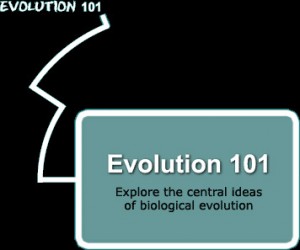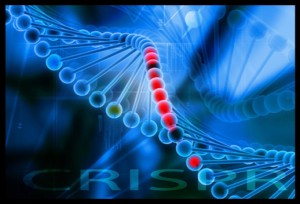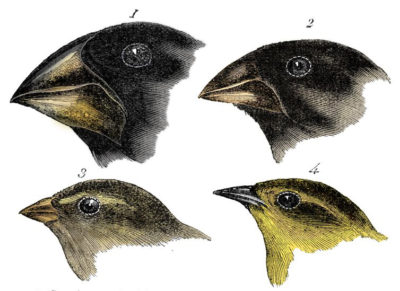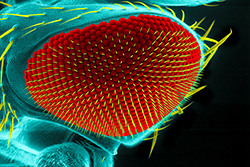by Richard William Nelson | May 14, 2015
 The Evolution 101 Common Ancestor website, produced by the University of California, argues that “the central idea of biological evolution is that all life on Earth shares a common ancestor.”
The Evolution 101 Common Ancestor website, produced by the University of California, argues that “the central idea of biological evolution is that all life on Earth shares a common ancestor.”
This idea dates back to Charles Darwin’s grandfather, Erasmus Darwin (1731-1802). He proposed that “all warm-blooded animals have arisen from one living filament,” which is a common ancestor.
In their book Tree Thinking (2013), David Baum of the University of Wisconsin, along with Stacy Smith of the University of Colorado, attempts to build on this Darwinian argument. “This means,” they argue, “that evidence of common ancestry is also evidence for evolution.”
Continue Reading
by Richard William Nelson | Apr 2, 2015
 Microbes, once thought to be life’s simplest forms, are now known to use complex, synchronized genetic processing as a defensive system against foreign invading microorganisms.
Microbes, once thought to be life’s simplest forms, are now known to use complex, synchronized genetic processing as a defensive system against foreign invading microorganisms.
As a previously unknown and unrecognized genetic mechanism, CRISPR challenges the tenets of evolution. This microbial defense process, now known as CRISPR, further undermines natural selection’s fundamental principle of early life spontaneously emerging from simple processes.
In The Origin of Species, Charles Darwin envisioned life starting “from so simple a beginning endless forms most beautiful and most wonderful.” CRISPR presents a new challenge to current theories of evolution, including Darwinism, neo-Darwinism, and the Modern Synthesis theory of evolution.
Continue Reading
by Richard William Nelson | Mar 5, 2015
 The finches Charles Darwin encountered on the Galapagos Islands have served as one of the most enduring examples of evolution throughout the twentieth century.
The finches Charles Darwin encountered on the Galapagos Islands have served as one of the most enduring examples of evolution throughout the twentieth century.
As Darwin explains in The Origin of Species, “one [finch] species had been taken and modified [changed] for different ends” – the essence of natural selection.
However, in the nineteenth century. The technology to scientifically validate these changes in the genetics of Darwin’s finches was inconceivable.
Continue Reading
by Richard William Nelson | Jan 9, 2015
 The genetic code is the universal language of life, from the first microbe to man. Searching for the origins of the first genetic code mystery, however, is akin to deciphering the evolution of life.
The genetic code is the universal language of life, from the first microbe to man. Searching for the origins of the first genetic code mystery, however, is akin to deciphering the evolution of life.
Over the past two years, the research team of Bojan Žagrović (pictured) at the Max F. Perutz Laboratories of the University of Vienna has been searching for a natural mechanism driving the genesis of the original genetic code − a longstanding challenge of the evolution industry.
Since the interactions between genetic material (nucleobases, DNA, and mRNA) and amino acids produce the workhorse molecules of life–proteins, Žagrović’s research team has been focusing on understanding what might have been the initial natural physicochemical mechanisms producing the original genetic code.
Continue Reading
by Richard William Nelson | Nov 28, 2014

Charles Darwin‘s fascination with insects began early in life. While studying at Cambridge University, his interest continued with earnestness, as he sent James Francis Stephens, his professor of entomology (insects), specimens and descriptions of the critters.
At the time, discussing the evolution of insect genetics would have been as relevant as discussing moon landings. Just months before setting sail on the HMS Beagle in 1831, Stevens published his recognition of Darwin’s work on insects (pictured right) in his widely popular Illustrations of British Entomology.
Continue Reading
 The Evolution 101 Common Ancestor website, produced by the University of California, argues that “the central idea of biological evolution is that all life on Earth shares a common ancestor.”
The Evolution 101 Common Ancestor website, produced by the University of California, argues that “the central idea of biological evolution is that all life on Earth shares a common ancestor.”

 The
The

